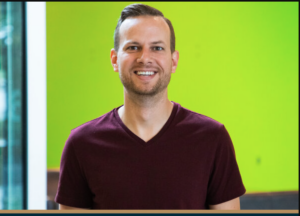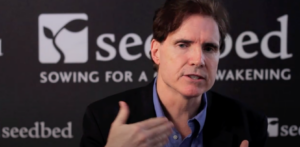December was a hard month and its effect continues to creep into my days and the days of many I love. We lost a friend, so we are all learning together — again — that grief is exhausting. Complicated. Soul-stretching.
I have learned that in the midst of loss, Jesus is often the one friend wise enough to simply be present without comment. Although, I have to say I wish he’d speak up a bit more. Some days, it frustrates me, his quietness. I interpret it as rejection because I am a broken person desperate for someone to fix my pain, to clear the fog, to say something in 280 characters or less that will make all the rest of it make sense. But no matter how much I beg, manipulate or argue, Jesus keeps his posture — quiet, but solidly present. A faithful friend. Which, of course, is what I need most even when I don’t know it.
Years ago, another friend of mine lost her husband. They met in an Alcoholics Anonymous meeting and became followers of Jesus. I never got the sense Christian life was easy for them; it was so different from what they’d lived for so long. When you’ve lived a lifetime trying to fill an emptiness with alcohol, all your relationships incubated in the petri dish of addiction, it is reasonable to wonder if Jesus is just another way to be disappointed.
But hard as it was, my friend and her husband discovered Jesus was the one thing that worked. He saved them from self-destruction and fed them a kind of healing nothing else had been able to offer. He was the only one patient enough, kind enough, to hang in through the valleys to the feasts on the other side. And Jesus was the one who taught them to be friends with each other. When my friend’s husband became ill, they leaned on Jesus together and discovered he was enough. Just days before he died, my friend’s husband, laying on his deathbed, turned to her and said, “You know, it really is true: what a friend we have in Jesus.”
Yes, and amen. Surely it is no coincidence that it was precisely in his death that Jesus taught us some of the more profound lessons in friendship. Among his final words to his followers were these: “I no longer call you servants; I call you friends” (John 15:15). And then he picked up the cross and pointed it at all humanity — like a kid on a playground choosing his team — inviting all who would choose him in return to become his friends.
Not servants, but friends.
Christ’s friendship is an act of grace. Brian Edgar, in his book God is Friendship, writes, “It is a profound, unexpected, gracious and powerful promise” (p. 28). It is richer than servanthood, beyond what we can earn. The friendship of Jesus offers the joy of intimate presence, one to another, deep calling to deep. It is Jesus being willing to be with me in my grief without words — unjealously, unswervingly, peacefully there. And it is Jesus who teaches me to be a friend to those around me.
But I’m a pastor. Subtlely and not so subtlely, pastors are taught to detach from personal relationships for the sake of building the Body of Christ (this may be especially true of itinerating pastors). Books upon books indoctrinate us in the art of boundary-making as a mark of good leadership. Jesus, meanwhile, says things like, “Greater love has no one than this, that one lay down his life for his friends” (John 15:13). Maybe both things are true. Maybe there is a place in healthy leadership for giving our hearts to those in our communities.
Perhaps it is not just okay but a mark of holiness to discover the place of friendship not beyond but in the midst of ministry.
Indeed, that also has been part of my grief — that I haven’t learned sooner how to be a better friend to those who have chosen to live in community with me and to do so as an act of ministry in the best sense of that term. As Edgar says, “Christian friendship is to be transformative. It is a loving ministry that transforms us into the image of our friend Jesus, and enables us to be friends and reflectors of Christ’s character to others” (p. 172).
As he so faithfully does, God is redeeming this season by teaching me things I could learn no other way. He is revealing the power and beauty of friendship as he offers me his whole heart and proves himself a faithful friend. And he is modeling the kind of friend I can also become, so that in the valley of shadows there is beauty instead of ashes, the oil of joy instead of mourning.








